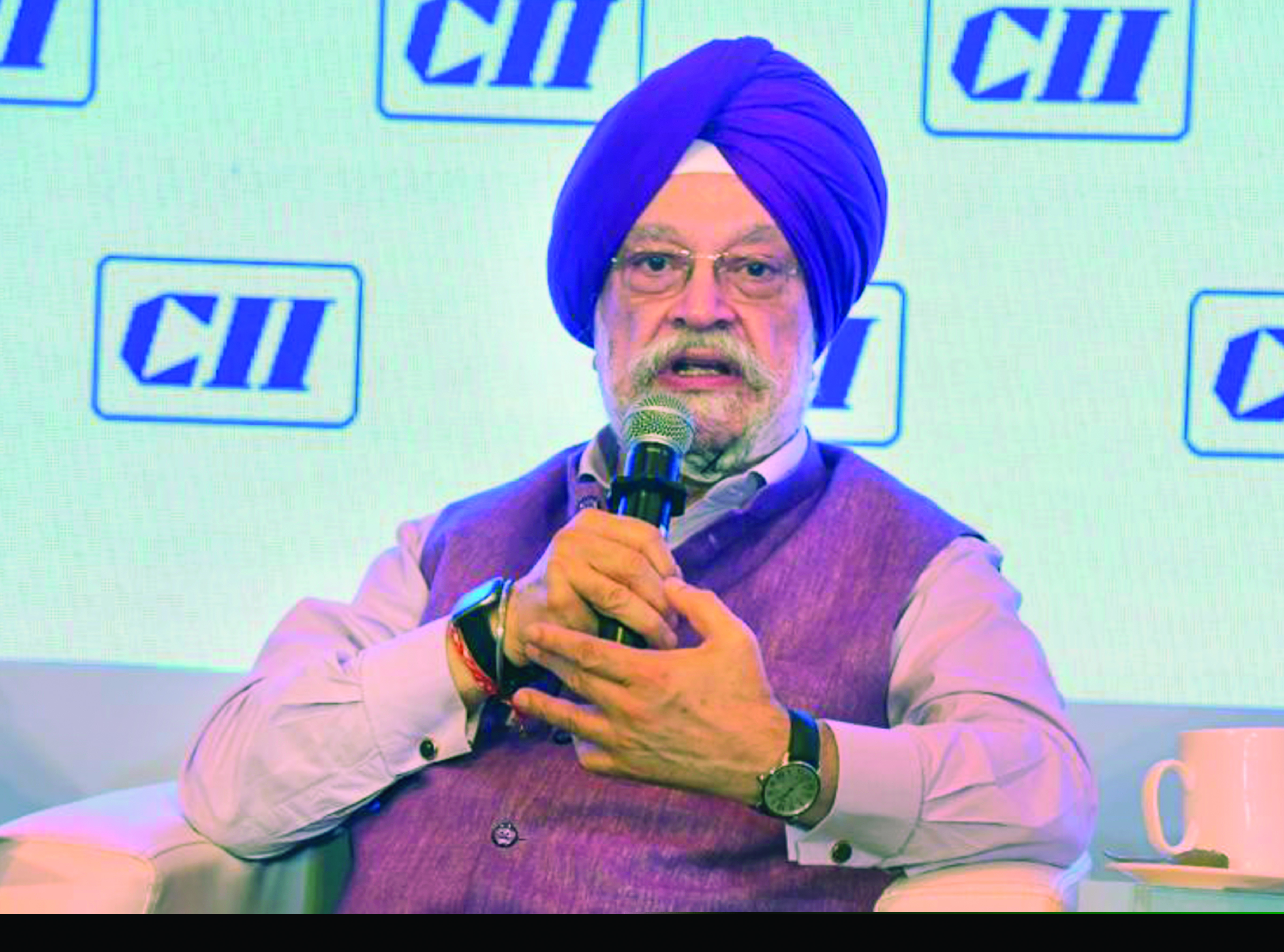India’s energy transition: Puri advocates balanced approach at CII PSE Summit

New Delhi: Petroleum and Natural Gas Minister Hardeep Singh Puri on Thursday emphasized India’s strategic energy transition, rooted in the essential pillars of ‘Availability’, ‘Accessibility’, and ‘Sustainability’.
In a significant address at the 12th CII Public Sector Enterprises (PSE) Summit 2024, held in New Delhi under the theme “Viksit Bharat: Transforming PSEs into Engines of Sustainable Growth,” he acknowledged the critical role of fossil fuels in India’s energy mix, particularly in the short term, despite the global shift toward renewable energy sources.
Puri argued that while the ultimate future may lie in cleaner alternatives, balancing dependency on fossil fuels with the development of renewable and biofuels is crucial for a sustainable transition. His remarks reflect a pragmatic approach to energy policy, recognizing the realities of India’s current demand, infrastructure, and economic needs.
Puri also highlighted the impressive economic growth of public sector enterprises, noting that their net worth surged from Rs 9.5 trillion in 2014 to Rs 17.2 trillion in 2023—an 82 per cent increase. This growth has empowered PSEs to operate with a level of autonomy that increasingly rivals that of private companies, challenging the long-standing perception of these entities as overly bureaucratic. The minister projected that India’s economy could exceed $20 trillion within the next two decades, a milestone that will necessitate enhanced engagement and collaboration with the private sector.
The summit, organized by the Confederation of Indian Industry (CII), underscored the pivotal role of PSEs in achieving India’s energy and economic goals. Leaders discussed various strategies to navigate the complexities of energy transition while maximizing economic potential. One of the highlights was the achievement of biofuel blending targets, with the government’s initial goal of 10 per cent ethanol blending reached five months ahead of schedule. Furthermore, the more ambitious target of 20 per cent blending, originally set for 2030, has been advanced to 2025, with current blending levels standing at an impressive 16.9 per cent.
Skill development emerged as a prominent theme throughout the discussions. Minister Puri pointed to initiatives like Prime Minister Modi’s Internship Scheme, designed to bridge the skill gap and foster collaboration between public and private sectors. He stressed the importance of preparing a skilled workforce to meet future demands, especially as India adapts to a rapidly changing global economy. This sentiment was echoed by Arun Kumar Singh, Chairman of the CII PSE Council and CEO of Oil and Natural Gas Corporation (ONGC), who advocated for strengthening public-private partnerships to enhance skill development and integrate cutting-edge technologies such as artificial intelligence (AI), blockchain, and the Internet of Things (IoT). Singh argued that the adoption of these technologies would enable PSEs to align with the principles of Industry 4.0, ensuring their competitiveness in an evolving market landscape.
Another critical issue addressed at the summit was the financial burden of litigation on businesses. Singh proposed alternative dispute resolution methods, particularly mediation, as a means to foster a more efficient business environment. This approach aims to reduce the time and costs associated with legal disputes, allowing companies to focus on core operations and innovation.
Rajarshi Gupta, Managing Director of ONGC Videsh Limited, emphasized the transformative potential of AI and digital technologies in overcoming operational challenges and driving innovation. He revealed that ONGC has set an ambitious target to achieve net-zero operational emissions by 2038, with a substantial budget of $24 billion allocated to reach this goal. Such commitments reflect the broader trend among PSEs to prioritize sustainability and responsible practices.



